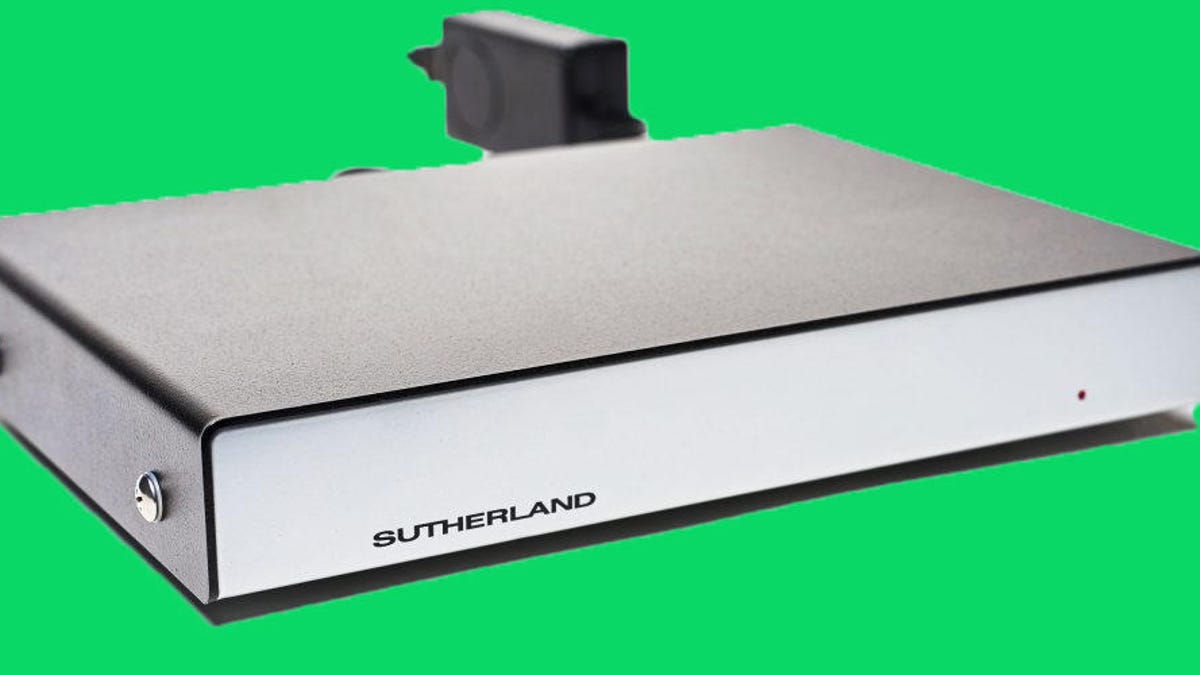Sutherland KC Vibe preamp unlocks unheard magic in your LPs
The Sutherland KC Vibe phono preamp sounds sweet. Real sweet.
Ron Sutherland is an audio industry veteran and he was one of the founders of the MartinLogan speaker company. (Logan is his middle name.) Sutherland a deep passion for phono preamps: he now makes eight different models. I recently asked him about his approach and he summed it up with one word: "Simplicity."
The KC Vibe is Sutherland's least expensive preamp, but a look inside the chassis reveals the elegance of his circuit design and execution. The pricier ones aren't more complex or loaded up with features, it's just that he quality of the parts goes up and the power supplies are better, so those models simply sound more expressive than the less expensive ones.
The KC Vibe phono preamp is made in the US, and it sells for $895. The preamp's beefy 48V external power supply provides a huge margin for extensive filtering and isolation. On the preamp's rear panel you'll find machined, gold-plated, Teflon-insulated audio jacks. The KC Vibe handles moving-coil and moving-magnet phono cartridges.
The Sutherland KC Vibe phono preamp's rear panel.
For this review I used a Technics SL-1200GR turntable and Ortofon 2M Black moving-magnet and Hana EL moving-coil cartridges, and the sound was dynamically alive and vibrant.
With Bob Marley's 1978 album "Kaya", his rhythms bounced and moved with life, and when you stop and think about it, this is closer to the way Marley heard it. He never made a digital recording: to Marley music was all analog, so when you play old pressings of his LPs, the music feels more authentic. The KC Vibe gets you closer to the sound embedded in the grooves. Drum dynamics and attack were reproduced with rare precision and the bass was sure-footed, deep, clear and defined. Returning to my budget reference phono preamp, the Schiit Mani, the sound softened and blurred, and lost so much of the KC Vibe's immediacy. Going back was no longer an option!
The Cowboy Junkies 2007 LP "Trinity Revisited" is a much better recording than Marley's. The sound was more vivid, and the stereo image blossomed into a near 3D holographic presence. The 'Junkies and guest musicians took up residence in my living room.
Listening to an original 1959 pressing of "Latin Fire (The Big Beat of Candido)" is proof positive of how good early stereo LPs can sound. Cuban percussionist Candido fronts a big band, and his brass section sounds natural, with plenty of bite, but there's no harshness or edge. It's a high energy recording -- the music practically leaps out of the grooves.
I'm not generally a fan of mono recordings because they can sound too flat, but here with Cannonball Adderley's "Somethin' Else" LP, the soundstage had depth and dimensionality.
Match the Sutherland KC Vibe with a first-class turntable and phono cartridge and you'll unlock heretofore unheard magic in your LPs. For as long as I've been an audiophile -- a very long time -- that experience never gets old. Well recorded LPs, including some I found on the street or bought in thrift stores for a dollar, never cease to amaze me.


